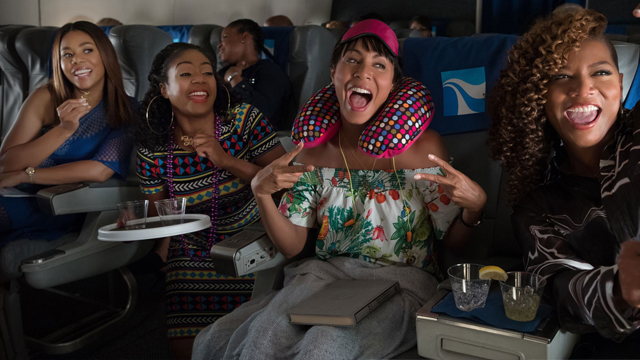This summer’s box office suffered a massive slump. It’s the first time the American summer box office was under $4b since 2006. A wide range of movies underperformed – tired franchise entries, raunchy comedies, and a whole slew of forgettable wide releases (does anybody remember Wish Upon?) – with no simple formula separating the successes from the failures. A not-so-minor part of this story seems to be the way movies have become both gendered and segregated in the past decade, and how some audiences want to see movies from a broader perspective.
Like it or not, the reality of Hollywood is that cinema is largely a boy’s club. That’s been changing ever so slowly, but every level of Hollywood is dominated by boys. The heads of studios are mostly boys. The producers are mostly boys. The directors and writers are dominated by boys. The lead roles are dominated by boys. Film criticism is dominated by boys. It’s boys up and down the block. But, fuck, when a woman gets in on that business (Wonder Woman, Selma), the results can be gangbusters.
Going back to a telling release from 2016, when Sony announced that they were rebooting the beloved classic Ghostbusters with a gender-flipped cast, geek fandom lost their shit. On one side were the women who wanted to take on a franchise that was dominated by boys and make it for women. On the other side was the group who didn’t want another boy-centric Ghostbusters, nevertheless one with girls in it. Hot on the heels of the Gamergate controversy, the pro-Lady Ghostbusters group thought the anti group was just being sexist and not wanting women to get in on a geek franchise. Large sections of the anti-Lady Ghostbusters group saw the gender flipping as a shrewd and calculated marketing ploy to profit from identity politics for little more than a cashgrab franchise. Other sections of the anti-Lady Ghostbusters group were indeed being sexist and trying to keep women out of their beloved franchise.
It seems that ever since that announcement, Hollywood has become a battleground for equality and diversity. This is a good thing. Audiences seem to be fighting for more movies by women with a far more diverse set of leads. The top movie at the box office this year was gay director Bill Condon’s Beauty and the Beast, followed by Patty Jenkins’ Wonder Woman and then the multi-cultural boy movie Guardians of the Galaxy Pt. 2. The box office hit list goes on to include the latest installment of the multi-cultural The Fast and the Furious franchise, The Lego Batman Movie, where Commissioner Barbara Gordon berates Batman for being a lone white male who stands apart from the law, Get Out, a horror movie about the black experience directed by a black man, Fifty Shades Darker, a movie franchise controlled by its female author, and Girls Trip, a gross out comedy movie with four African American female leads.
While general audiences are clamoring for a wider range of representation both in front of and behind the camera, Hollywood steadfastly remains a boys club. This summer, Baby Driver and Logan Lucky are but two critically-acclaimed boy films helmed by high profile male auteurs that failed to find a significant audience. Franchise fatigue also reared its ugly head; the latest entries of Alien, Pirates of the Carribean, The Mummy, and Transformers (all male-centric entries) performed below expectations.
Despite this evidence, Diversity wasn’t a magic wand for success. Teens and adults were less likely to see raunchy comedies; The House, Snatched, Rough Night, and Baywatch all underperformed (two of which are pointedly female-centric). Nobody really paid to see the multi-racial films It Comes At Night and The Hitman’s Bodyguard. Meanwhile, Dunkirk made enough to stick into the top 10 and even though both Transformers and Pirates of the Carribean underperformed for their series, they both outperformed Girls Trip and Fifty Shades Darker.
These answers are pat. Some say that movies have paled ever since the election of Donald Trump turned politics into an ongoing reality show cycle of constant offense, shock and outrage. Others say that the constantly rising ticket prices and new trend of assigned seating have deterred them from seeing a movie if they were guaranteed a bad seat. Still others say that that the rise in home theaters are keeping people home. Or, maybe the quality of movies have dropped (people have said that James Cordon needs to be arrested for making The Emoji Movie and then appearing before the movie to thank people for seeing that piece of shit).
Still, I think Hollywood seems to be changing, slowly but surely. Even if we’re getting movies for girls (Girls Trip) and movies for boys (Baywatch), the culture is slowly changing. If that means, further down the road, fewer movies like Tom Cruise’s The Mummy or The Emoji Movie, I won’t be sad at all.

